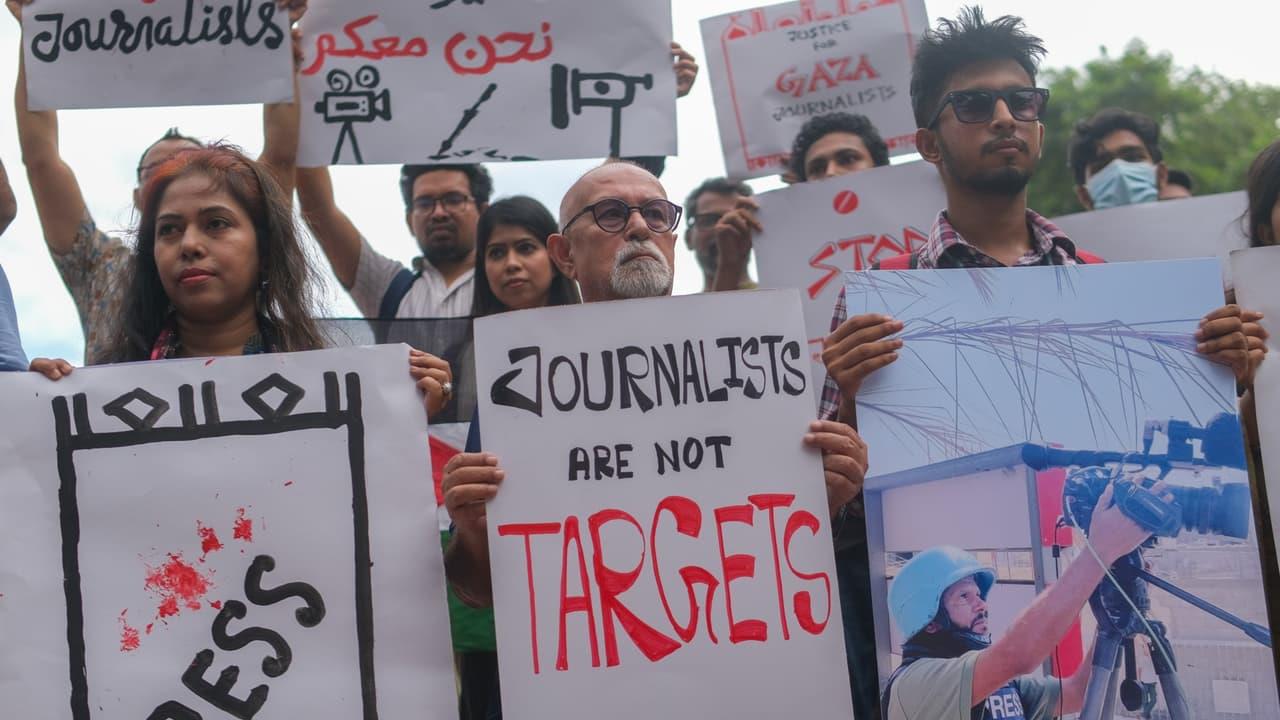
Bangladesh's Democratic Guardrails Crack: Press Silenced, Police Biased, Courts Compromised
New Delhi: For a democracy to operate effectively, certain mechanisms are essential to ensure its institutions run smoothly. Acting as pillars, these institutions uphold accountability and safeguard the system's integrity. The freedom of the press, impartial policing, and independent prosecution are the hallmarks of a healthy and functioning democracy.
When the institutions responsible for these actions come under tight control of the ruling regime, it takes away from their nature and duty of exposing wrongdoing.
These institutions then fail to investigate and prosecute it impartially. They begin to fail or are hollowed out. That is when the political edifice becomes brittle.
Bangladesh's Three-Pronged Democratic Strain
Over the past year in Bangladesh, evidence from rights groups, media watchdogs, and international monitors has revealed deep and concurrent erosions in press freedom, policing, and prosecutorial independence.
It is a dangerous three-pronged strain on democratic guardrails.
Independent journalism ensures that societal anomalies do not go unnoticed and that timely action is taken.
In Bangladesh, however, the media at large is suffering.
Journalist Harassment and Media Intimidation
Between August 2024 and July 2025, Transparency International Bangladesh documented at least 496 instances of harassment against journalists, including 266 being named as accused in murder cases linked to the July uprising.
Three journalists were reportedly killed while on duty during that period.
Additionally, the Yunus-led government revoked press accreditations affecting 167 journalists, curbing their access to official information and events, adding insult to injury.
Apart from this, raids on newsrooms, replacement of editors with those in favour of the ruling regime, freezing of journalists' bank accounts, and withdrawal of accreditations lead to direct intimidation and silencing of the media.
The tactics used to intimidate the media have the same effect as overt media control in starving independent outlets, which happen to be critical of the regime, of the resources and access they need.
Protests in mid-2024 and the state response that followed exposed systemic problems even in law enforcement.
The United Nations and other monitors recorded widespread and often brutal repression during student-led protests. This includes allegations of arbitrary detention, beatings, and denial of timely judicial review.
The UN Human Rights Office's analysis documented deaths, serious injuries, and testimony pointing to unlawful use of force and constraints on justice for victims.
Amnesty International and other organisations warned against mass arrests and the use of detention of thousands of Bangladeshi individuals as a tool of political coercion.
The justice system, which ought to treat citizens equally before the law, has also functioned worryingly in the past year.
High-profile judicial decisions have produced acquittals in long-running, politically charged cases.
For instance, the courts overturned convictions in the 2004 grenade attack on Sheikh Hasina's rally in December last year. This fuelled accusations of impunity from the Awami League and fierce debate over judicial independence.
On the other hand, hundreds of opposition figures, activists, and journalists who face charges under amended anti-terror or special powers laws, critics say, are being applied selectively.
This corrodes the trust the public has in courts and prosecutors.
The Legacy of the 2009 BDR Mutiny
The tragedy of the 2009 BDR mutiny remains a live wound in Bangladesh's justice record.
International monitors, including Human Rights Watch and Amnesty, documented serious due-process concerns in the mass trials that followed.
Allegations of torture in custody, overcrowded and rushed proceedings, and sentences handed down in ways criticised as failing international fair-trial standards. Survivors' families continue to demand transparency, meaningful inquiry, and adequate compensation, arguing that past trials and subsequent releases have not settled the deeper questions of accountability and victim redress.
Calls for an independent review of releases and reparations have been repeated by rights groups and relatives seeking truth and closure.
Why Press, Policing, and Prosecution Matter Together
Press freedom, impartial policing, and independent prosecution are mutually reinforcing.
An autonomous press exposes abuses while neutral policing preserves the space for lawful dissent and protects citizens.
Moreover, independent prosecutors and judges convert the investigation into just outcomes. All these institutions being dependent on one another, the breaking of one affects all others.
Press cards must be restored, and arbitrary account freezes must be ended. Police abuses need independent probes, with civilian oversight and clear reporting. Prosecutors must act free of politics, with fair rules for sensitive cases.
Democracy depends on accountability. When the press is silenced, police are partisan, and prosecutions are political, trust collapses. To rebuild, Bangladesh needs political will, judicial courage, and an active civil society.
It is obvious then that international observers have repeatedly urged independent inquiries and respect for rights. Domestic commentators warn that unless corrective measures are taken, democratic institutions will continue to lose credibility.
Legal Disclaimer:
MENAFN provides the
information “as is” without warranty of any kind. We do not accept
any responsibility or liability for the accuracy, content, images,
videos, licenses, completeness, legality, or reliability of the information
contained in this article. If you have any complaints or copyright
issues related to this article, kindly contact the provider above.


















Comments
No comment